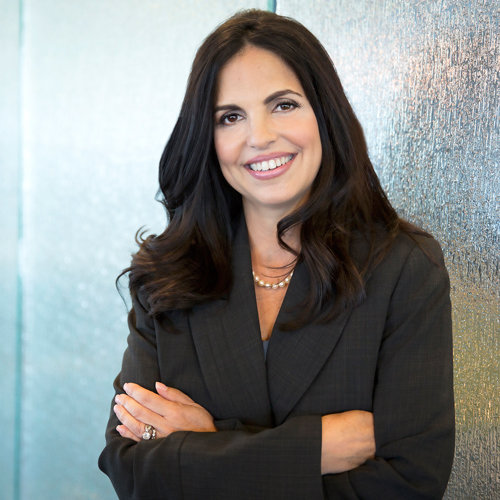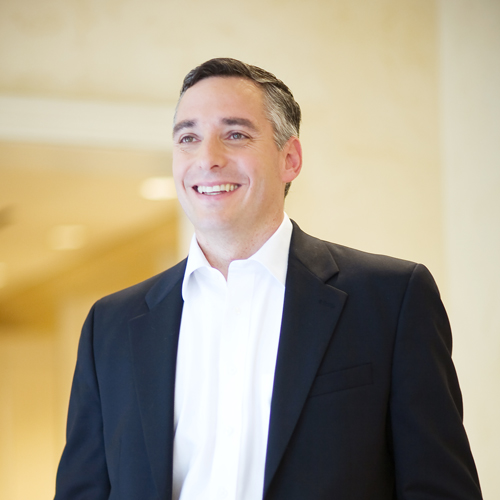Jesus Montano goes by Laz, which is short for Lazaro, his middle name. Back in the 1970s, when Montano was a Cuban-born kid growing up in Connecticut, his classmates met his given first name with—at best—awkward mispronunciation. So he didn’t use it.
Nowadays, Montano is better identified as SVP and CISO for Voya Financial Services, a company serving 13 million individual and corporate customers. And as it happens, US schoolchildren are much more likely to say his first name correctly—a symbol, he believes, of all that has changed for the better in the past few decades.
His name and his new home were only part of his challenges growing up, however. Starting his collegiate years as an electrical engineering major while developing a strong interest in computer games (“back when you played them with punch cards,” he remembers), Montano initially switched his major to computer science as a way to better pursue his gaming interests. Finding his way from there to the IT world resulted in a career path that was far from traditional. “There was no path. It was more like a sailboat going off on one course and then off on the next,” Montano quips—but he attributes much of his success to traditional beliefs instilled by his parents: hard work, commitment, dedication, and love of family.
In fact, it was his love of family that inadvertently led him to his current position. When his previous employer relocated out of New York City, Montano followed a colleague’s lead and educated himself about Voya. “In 2014, the company was like a large startup, if you will,” he recalls. “Emerging from a successful IPO in 2013, Voya had a pretty significant presence, and its goals aligned with my own interests in regards to retirement.”
That word “retirement” took on new meaning for Montano when his father, who had sacrificed all he had in Cuba so that his family could have a shot at the American dream, inadvertently lost his pension when he retired too early. He spoke limited English, according to Montano, which made understanding the financial details of the pension plan difficult for him.
His parents recovered, in spite of this setback. “But for me, retirement became my pre-occupation,” Montano says. “Because of my dad’s experience, I decided I’d better make sure I have my retirement plans in order. That’s what actually sold me on the opportunity at Voya: we’re an organization that aims to be America’s retirement company.”
As the head of information security, Montano supports the CIO by managing the programs and practices Voya has in place with regards to cybersecurity, technology risk, and customer protection. In this role, Montano is in direct communication with regulators and customers to ensure the protection Voya offers is industry leading and always evolving to address the risks and realities of today’s digital world. But the difference, he says, between doing this work at Voya and doing it elsewhere can be found in his team’s careful analysis and execution. Simple do-this, don’t-do-that rules don’t apply here.
“We’re not just providing protection; we’re figuring out how to do it in a way that helps Voya conduct its business securely for our customers and partners,” he explains. “It’s more about how we secure and how we protect through technology, as opposed to justifying the rules of that protection—that subtle difference makes a huge impact.”
“Because of my dad’s experience, I decided I’d better make sure I have my retirement plans in order. That’s what actually sold me on the opportunity at Voya: we’re an organization that aims to be America’s retirement company.”
And in a business world where security matters are gradually becoming more transparent—at least in regards to the collaboration and sharing of thoughts and ideas between companies—Voya’s approach is remarkable, and perhaps representative of what Montano sees as another big change on the horizon. “For many years, companies thought the silver bullet to security was more technology, more automation, the latest whiz-bang tool, or the latest sales pitch,” he says. “I think they’re realizing now it’s not that simple. The majority of breaches happening today, after all, are from vulnerabilities that were detected years ago. What needs to be remembered is that people are an important part of keeping an organization secure.”
For Montano and his team, this translates into steady efforts to enhance efficiency for Voya. He points to the success his team has had, making ongoing tweaks and adjustments to their processes—always being on the lookout for the better slant or approach. The improvements, he notes, have been significant. But with his father’s story always in the back of his mind, Montano admittedly comes to this mission of protecting customers’ information with a different sort of drive—one that bridges technology security to helping people plan, invest, and protect their savings to create emotional and financial security. “I’ve had very meaningful jobs in the past, but they haven’t necessarily personally connected to me in this way,” he says.
In fact, he believes all the talent at Voya connects with that mission, that the ability for each person to have an impact helps give the company its vibrant culture. Between the company’s efforts to help employees broaden their talents and accrue more responsibility—and Montano’s own dedication to keeping his team motivated and excited about what they do and why they do it—job retention levels are quite impressive. And, even better, word is getting around.
“I am receiving many inquiries from social networking contacts asking about job opportunities at Voya,” he marvels. “It’s a nice feeling to be with an organization that is building such a strong reputation.”

